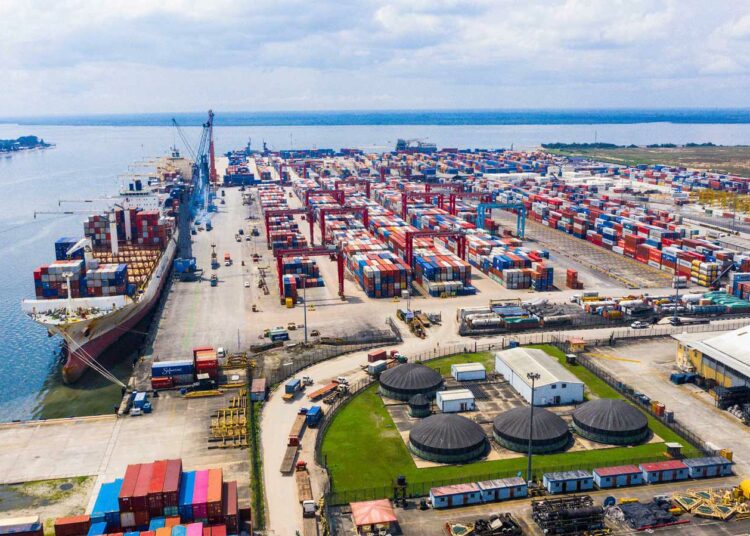The quest to enhance trade transparency, revenue protection, and national security at the nation’s ports may have influenced the federal government’s decision, through the Nigerian Shippers’ Council (NSC), to establish a legal framework—the International Cargo Tracking Note (ICTN)—with a range of objectives that are expected to make cargo operations seamless and convenient for stakeholders.
Before this project comes into operation and with the delay in its implementation, the nation lost approximately $.5 billion yearly. This means that in the last five years, Nigeria has lost $2.5 billion in revenue. This figure reflects the financial losses incurred and the erosion of Nigeria’s trade reputation due to frequent smuggling and the influx of illicit goods.
It is important to point out that the law, among other benefits, enhances cargo security and trade transparency by providing real-time cargo data and reducing smuggling, cargo under-declaration, and trade fraud. It also strengthens the country’s supply chain security by ensuring cargo visibility from the port of loading to the port of destination.
Similarly, it facilitates efficient customs clearance, pre-arrival processing, and faster clearance times, reduces congestion at ports, and lowers demurrage costs for traders.
The ICTN, as a legal instrument, ensures accurate cargo valuation, preventing revenue loss due to false declarations. It also aligns with global trade best practices as approved by the World Trade Organisation’s (WTO’s) Trade Facilitation Agreement (TFA) and international maritime security standards.
As an internationally recognised tool, it streamlines cargo inspection and clearance through automated pre-arrival information, thereby reducing inefficiencies in port operations while enhancing trade facilitation.
To ensure the system is hitch-free, NSC, in collaboration with key stakeholders, has reviewed concerns regarding cost implications, implementation procedures, and system efficiency. In its present form, ICTN reflects stakeholder inputs, complements the Nigeria Customs Service’s role as an additional regulatory mechanism, and works to ensure minimal disruption to business operations.
It is also necessary to stress that, in synergy with customs systems, it enhances compliance, risk assessment, and trade efficiency.
The system provides real-time tracking, enabling stakeholders, including port authorities, customs, freight forwarders, and shipping companies, to monitor cargo from when it is loaded onto a ship until its final destination.
The ICTN is an electronic system designed to ensure the traceability of goods across international borders by assigning a unique identification number to each shipment.
This mechanism enhances visibility and accountability in the shipping process, reducing opportunities for fraud, smuggling, and theft, particularly monitoring daily crude oil exports and curbing oil theft.
Additionally, it facilitates customs clearance by providing real-time updates that alert authorities to any discrepancies in cargo movement.
The concept of ICTN emerged from the need for greater efficiency and transparency in the global supply chain, particularly as trade and commerce expanded, increasing the complexity of cargo management. The system bridges gap in existing tracking mechanisms, especially for shipments transiting multiple countries and ports.
In the opinion of this newspaper, the ICTN contributes to national security by detecting illicit trade, including arms smuggling, drug trafficking, and other contraband. It also strengthens Nigeria’s ability to meet international obligations under trade and security treaties.
Over the years, inefficiencies at Nigeria’s ports have resulted in delayed shipments, illegal activities, insecurity, and a lack of accountability in cargo movement. Cartels and non-compliant importers who thrive in these gaps by engaging in illicit trade activities that cost the economy billions have continued to tarnish Nigeria’s global reputation.
The absence of a fully operational technology to monitor and track cargo has exposed Nigeria to significant economic and security risks with exacerbated smuggling and the trafficking of dangerous goods.
Smuggling and under-reporting cargo have created loopholes in duty and tax collections, leading to billions in uncollected revenue, just as the lack of transparency in cargo handling has hurt Nigeria’s standing as a reliable trade partner.
To compound this challenge is the entry of contraband, arms and other illicit goods which have compromised national security
Obviously, the beneficiaries of the malfeasance will stop at nothing to ensure that the status quo, with all its negative implications for the economy and the country as a whole, persists. We commend the Nigerian Shippers’ Council, as an economic regulator legally empowered to introduce mechanisms that enhance trade facilitation, for its steadfastness in implementing measures to restore sanity in the system. It is pertinent to emphasise that ICTN is not a duplication of existing processes but a complementary tool that aligns with Nigeria’s customs and port regulatory framework.
As a newspaper, we are committed to fostering a competitive, transparent, and efficient shipping environment. To achieve this, it is desirable for stakeholders- Nigerian Shippers Council and port operators – to engage in constructive dialogue rather than misinformation. We maintain that ICTN is a vital tool for modern trade facilitation in Nigeria. We understand the anxieties often generated by introducing new and revolutionary ideas. The tendency to resist such a change as envisaged by the introduction of ICTN is often misplaced as the benefits are often lost in needless altercations. All that is required in this instance is for all stakeholders to act in synergy with the regulatory authority, NSC in this case, to ensure that ICTN implementation maximally benefits the Nigerian economy
In our opinion, ICTN as a system represents a bold step toward transforming Nigeria into a leading maritime hub in Africa. However, its success hinges on strategic investments in infrastructure, robust training, and unwavering government support. By empowering the NSC and providing the necessary legislative and financial backing, Nigeria can unlock ICTN’s full potential, ensuring a secure, efficient, and globally competitive maritime sector.





